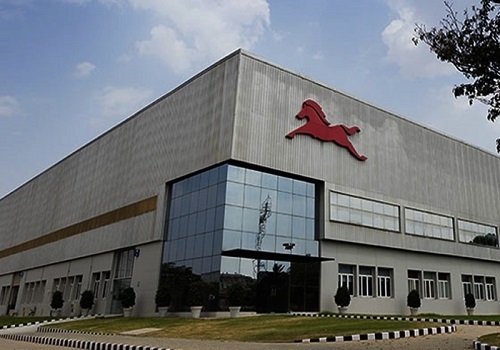India Strategy: Rise in systematic risk creates opportunity in cyclical, capital intensive and value stocks linked to domestic economy - ICICI Securities

* Rise in systematic risk to put pressure on stock valuations - US 10-year bond yield has spiked 140bps since Aug’22 to reach ~4% level while crude oil has fallen sharply below the US$90/bbl level after forming a peak at around US$130/bbl level earlier in the year. The above trends signal fear of slowing global growth and aggressive QT (quantitative tightening) expectations from the US Federal Reserve going ahead, thereby, resulting in the resurgence of ‘systematic risk’ for equities like the one witnessed in Jun’22.
* Aggressive QT cycle is the key concern, but slowing cost pressures and the recent spill-overs into financial markets may dampen the aggressiveness - US 10-year bond yield has been rising sharply recently on the back of an aggressively hawkish US Federal Reserve. However, drivers of further spike in US 10-year bond yield appear to be regressing in the form of a drop in shelter costs in the US (home prices and rents), across the board slump in global commodity prices including crude oil and sharp decline in shipping costs. Also central banks and/or governments of major economies like China, Japan, UK and Germany have either already turned accommodative or announced fiscal stimulus given the spill-over risks of a hawkish QT cycle on markets and economy.
* Rising systematic risk driven by global factors is likely to ensure Indian stocks also get impacted, thereby, creating opportunities given the behaviour over the recent past. Anatomy of the Indian equity market since Oct’21 peak indicates ‘bellwether stocks’ related to the domestic investment cycle (capital intensive) and related credit cycle along with discretionary consumption have outperformed markets reflecting cyclical upswing in these sectors. Broadly most of the above stocks have exhibited value traits (Chart 4). However, stocks related to global economy have heavily underperformed the benchmark indices (global commodities, IT services, etc).
* Fundamental underpinnings of the aforementioned behaviour can be attributed to the signs of an up-move in the domestic cycles (Refer charts 10 to 16 for capex cycle, credit cycle, discretionary consumption and corporate profit cycle) while the rise in systematic risk is being driven by global factors.
Cost pressures start to decline for manufacturers while demand remains robust
* Key highlight of the recent manufacturing PMI trajectory for India indicates a robust demand environment (Q2FY23 average of 56) while input cost pressures have started to decline sharply (Chart 1). Manufacturing sector’s share in the Indian economy reached the pre-covid level of ~18% of GVA in FY22 and is poised to hit an all-time high in the medium term (refer our report on manufacturing).
* Housing sales appear to be in a cyclical recovery mode in urban catchments like Mumbai (refer media report for Sep’22 housing sales) while discretionary demand for autos, leisure, entertainment, retail and travel appear quite robust.
* Other high frequency indicators of domestic demand for Sep’22 include:
* Non-food credit growth expands to 16.7% YoY.
* GST collections stood at Rs1.47tn.
* Merchandise import was US$59.35bn (5.44% YoY growth).
* Coal production increased by 12.01% YoY to 57.93 Million Ton (MT)
To Read Complete Report & Disclaimer Click Here
For More ICICI Securities Disclaimer https://www.icicisecurities.com/AboutUs.aspx?About=7
SEBI Registration Number INZ000183631
Above views are of the author and not of the website kindly read disclaimer





















